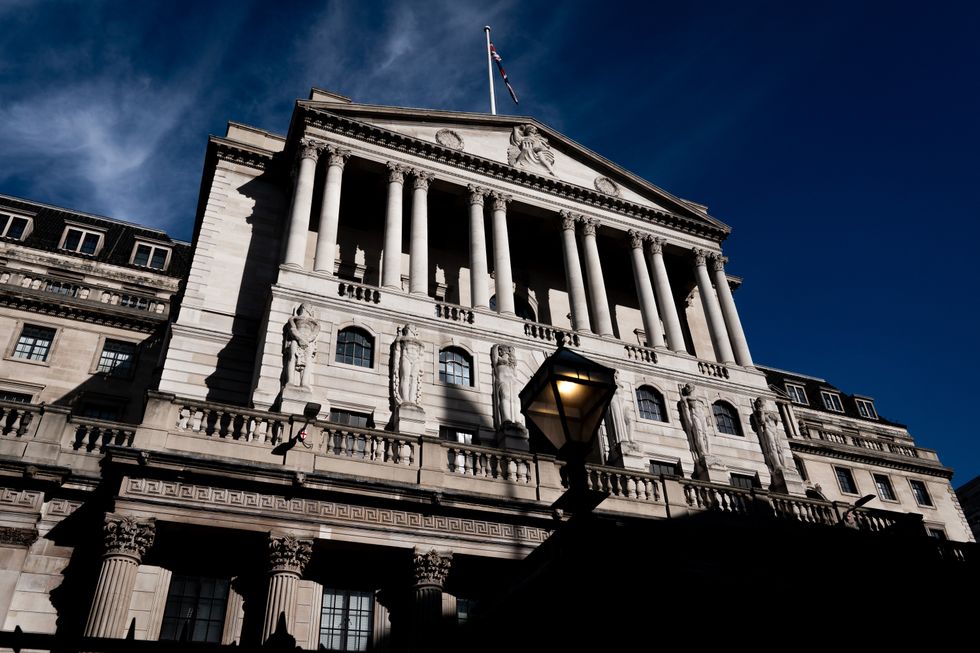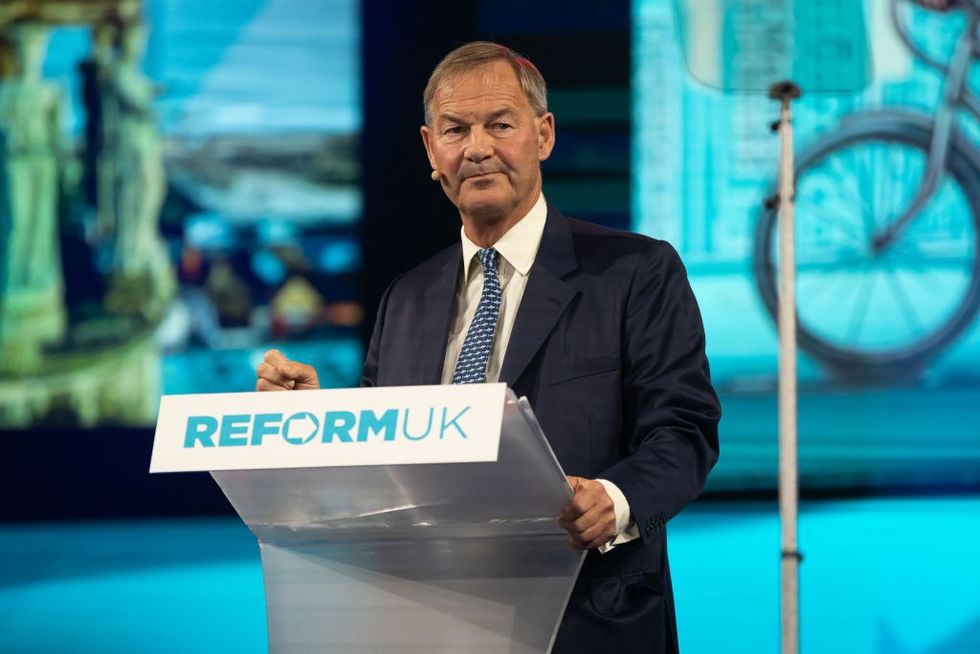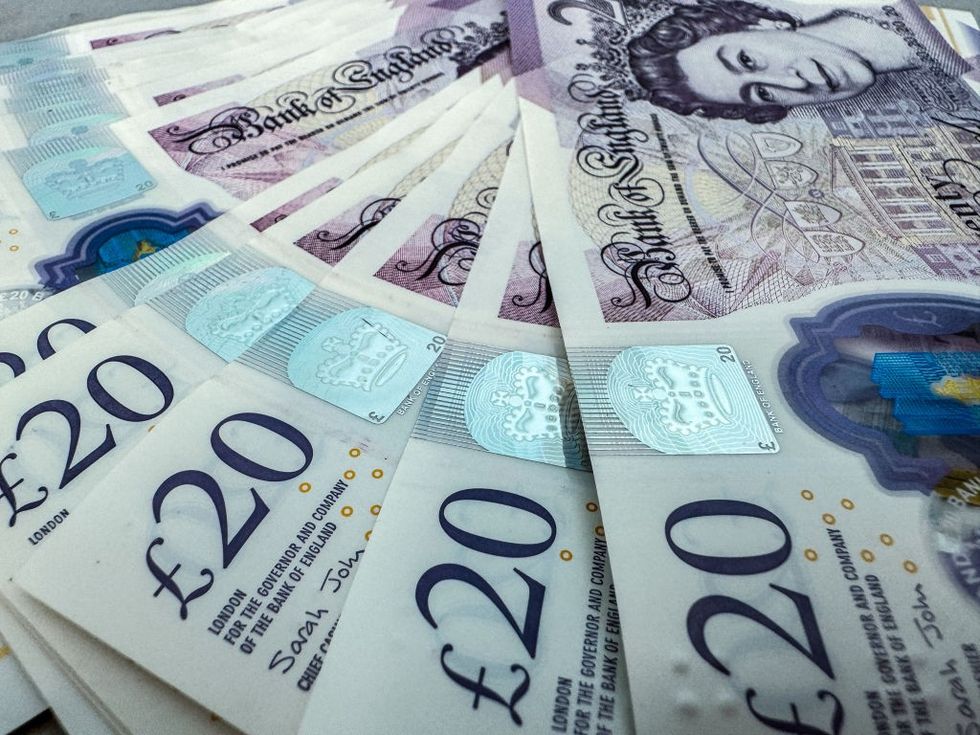Chris Philp shares concern of recession
GBNEWS
Debate is growing over whether to keep a policy that helped stop past recessions
Don't Miss
Most Read
Trending on GB News
Recession fears are mounting as MPs push to ban quantitative easing, a move which could strip the UK of a vital economic lifeline just when it may need it most.
The move has sparked concern among economists, who warn it could leave the UK exposed in the event of a financial crisis.
Quantitative easing, or QE, is a tool used by central banks to support the economy during times of crisis, such as the 2008 financial crash and the Covid-19 pandemic.
It works by injecting money into the system through large-scale purchases of government bonds and other financial assets, helping to lower interest rates and boost spending.
Goldman Sachs recently raised the chances of a U.S. recession to 45 per cent, as markets continue to fall amid President Trump’s escalating trade war.
As global economic uncertainty grows, debate is intensifying over whether QE should be used again to avoid a downturn.
Between 2009 and 2020, the Bank of England carried out five rounds of QE, buying nearly £900bn in bonds.
The approach has been used by central banks around the world during periods of major financial stress — though it remains a controversial policy.

Between 2009 and 2020, the Bank of England carried out five rounds of QE, buying nearly £900bn in bonds
PAThese large purchases push up bond prices while lowering interest rates, with the intention of reducing rates on products like mortgages.
The process aims to improve market liquidity, boost confidence and increase certain asset prices.
It emerged as a solution when central banks "ran out of road with interest rate cuts," according to Andrew Goodwin, chief UK economist at Oxford Economics.
Most recently, the Bank conducted three rounds of QE during the Covid-19 pandemic to prevent an "unavoidable economic slowdown" from worsening.
Rupert Lowe, the independent MP for Great Yarmouth, has introduced a private members bill currently progressing through Parliament that would ban QE.
The bill, now at its second reading in the House of Commons, argues that QE is comparable to Henry VIII's debasement of currency by reducing silver and gold content in coins.
When presenting the bill, Lowe claimed the practice is used by "third-world dictators" and leads to excessive state spending and intervention.
His view is considered controversial and not widely supported in modern economic circles, despite the Bank of England's use of QE having numerous critics.
Andrew Goodwin argues that QE was introduced when interest rates couldn't be reduced further, with the Bank Rate at 0.5 per cent in March 2009.
He said: "Quantitative easing was brought in when you couldn't go further with interest rates but now there has been a study showing you could go negative and there is more road to use up before you go to quantitative easing."
Despite criticisms, many economists maintain that QE is a necessary tool for central banks to keep in reserve.
Joachim Klement, head of strategy at Panmure Liberum, notes there is "clearly a consensus" that QE has helped keep long-term government bond yields down.

Rupert Lowe has introduced a private members bill currently progressing through Parliament that would ban QE
GETTY
Critics of QE implementation include Sir Paul Tucker, former deputy governor of the Bank of England, who questioned why the Bank wanted to "stimulate aggregate demand just as aggregate supply is closing down" during the Covid crisis.
The House of Lords Economics Affairs Committee raised concerns about bond purchases coinciding with increased government bond issuance, creating the impression of keeping government borrowing costs artificially low.
William Allen of the National Institute of Economic and Social Research argues taxpayers face significant losses, potentially reaching £150bn.
These losses occur because the Bank purchased bonds at inflated prices, with Allen describing QE as "badly designed and recklessly executed."
A significant challenge in evaluating QE is the difficulty in measuring its precise impact.
The House of Lords Committee acknowledged that "measuring the effectiveness of quantitative easing is difficult to do with precision."
QE has faced accusations of exacerbating inequality, with Resolution Foundation finding that 40 per cent of aggregate gains in asset prices went to the wealthiest 10 per cent of UK households.
However, the same research concluded that the overall macroeconomic effect was "positive and progressive."
The Bank of England's own research found benefits were unevenly distributed, with households near retirement age gaining most, while resulting income support disproportionately benefitted younger people.
There are signs that central banks may be more hesitant to deploy QE in future crises, with Bank of England Governor Andrew Bailey indicating they "don't want to take more interest rate risk."

William Allen of the National Institute of Economic and Social Research argues taxpayers face significant losses, potentially reaching £150bn
GETTY
Despite this caution, there are economists that reject Lowe's proposal to ban the practice entirely.
When asked about abolishing QE, Klement responded bluntly: "Your call is the first time I've heard about this."
With global economic uncertainty increasing and market volatility rising due to Trump's trade war, central banks are reviewing available tools.
While implementation may be refined, QE is unlikely to be abandoned completely as economies navigate uncertain waters.







